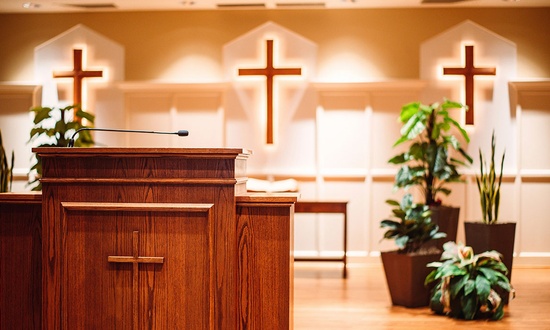Last fall I had the privilege of being on a Zoom call talking about Heaven and the New Earth with a dozen or so moms who had lost children to the same kind of brain cancer. It was an unforgettable 2 1/2 hours, looking into the faces of all these dear women, most of them close to the camera where the tears and the pain were clearly visible. One of their children had died 14 days before we talked, one a month before, numbers of them a few months to a year ago.
It might sound strange for me to say that I could see most of them as close or closer than I would have if we were in the same room together. In this case Zoom worked incredibly well, and now, my memories keep tricking me into thinking we were all together. The spiritual connection was such that we really were. It’s true there is no substitute for face to face contact, but love and human connection abounded. The same technology that can sometimes be a curse is a great blessing when doing something like this. The Spirit of God ministering to and through each other was so powerful even though I think we live in a half dozen states.
I had several wonderful follow up text exchanges with the leader of the group. She shared this question from one of the moms:
I don’t know who I am without my daughter. And I am having a hard time figuring that out. She was my world, my best friend, my shadow. I am completely lost without her.
Here is a lightly edited version of my answer:
One of the most important ways to reestablish a sense of identity is by having friends like you are experiencing in your support group. We need to go to and hear from and reach out to people who understand—people who have been there and are there, some of whom are further down the road, some of whom are not as far.
A vitally important part of our identity is in discovering the ministry God has called us to—which as 2 Corinthians 1 says, involves comforting others:
3 All praise to God, the Father of our Lord Jesus Christ. God is our merciful Father and the source of all comfort. 4 He comforts us in all our troubles so that we can comfort others. When they are troubled, we will be able to give them the same comfort God has given us. 5 For the more we suffer for Christ, the more God will shower us with his comfort through Christ. 6 Even when we are weighed down with troubles, it is for your comfort and salvation! For when we ourselves are comforted, we will certainly comfort you. Then you can patiently endure the same things we suffer. 7 We are confident that as you share in our sufferings, you will also share in the comfort God gives us.
8 We think you ought to know, dear brothers and sisters, about the trouble we went through in the province of Asia. We were crushed and overwhelmed beyond our ability to endure, and we thought we would never live through it. 9 In fact, we expected to die. But as a result, we stopped relying on ourselves and learned to rely only on God, who raises the dead. 10 And he did rescue us from mortal danger, and he will rescue us again. We have placed our confidence in him, and he will continue to rescue us. 11 And you are helping us by praying for us. Then many people will give thanks because God has graciously answered so many prayers for our safety.
We are to receive comfort from God and His people, and then we are to give that comfort to others. People who pour themselves into helping others are the healthiest people, and their identity becomes clear. They rest in the fact that God has a purpose and plan for their lives, and they are here as God’s ambassadors and ministers to meet the needs of others. This is critical to our sense of identity. Grieving is healthy, but if you become lost in your grief, and you always sit alone and only focus on your loss and pain, you can get stuck. God, not grief, should define who we are.
That doesn’t mean we should make ourselves so busy that we push grief away. There are certainly times when we need to step back, rest, lower our expectations of ourselves, work through our God-given emotions, and recognize we need comfort and help from others. That’s all part of it, and we should also remember while there are common elements in all grief, people still can grieve very differently. There’s no formula that prescribes how grief always works; we are individuals with different personality types, temperaments, and histories. But it does mean that with His strength and guidance, we all can and should look for ways to help others in Jesus’ name, as He directs us and brings us opportunities.
Resources
These two articles are not specifically Christian, but I think most of what they say is good (it’s just not complete on the spiritual level):
I Don’t Know Who I Am Anymore: Grief and Loss of Identity
Grief and Depression from Loss of Identity
This is written by a pastor and counselor and contains some good insights: The big question of grief: Who am I now?
This one deals with maintaining and cultivating our identity in Christ. This isn’t the whole answer to the question of identity after loss, but it’s important part of it, remembering that the relationship that should most define us it not our a relationship with a spouse or parent or child or friend, but our relationship with God: Signs You May Be Losing Your Identity in Christ
Of course, God is our Father, and Jesus is our brother and friend, as well as our Lord. We need to remind ourselves that when we lose someone we dearly love that we still have the God who created us in His image and promises He is with us always even into the end of the present age, and with us forever in Heaven. Hence, while we may feel we have lost our identity we have not lost it. We need to renew our minds from God’s Word by reminding ourselves who we really are.
This article covers a lot of ground and does it well, and while it’s not a direct answer to this question, it contains much that pertains to it: Living with Healthy Grief.
This isn’t about identity per se; it’s about was grieving and rejoicing for our loved ones at death, which are simultaneous realities that are sometimes hard to keep in balance: Christian Death: Mourn or Celebrate?
This doesn’t deal directly with the loss of a loved one, but it does deal with our sense of identity in Christ and could be helpful: Who Am I? A New Way to Define Identity
Finally, and in one sense most importantly, here are some passages of Scripture that deal with who we are as God’s creations and His children.
See Randy’s book Heaven. You can also browse our additional resources on Heaven.Photo by Sandra Frey on Unsplash




